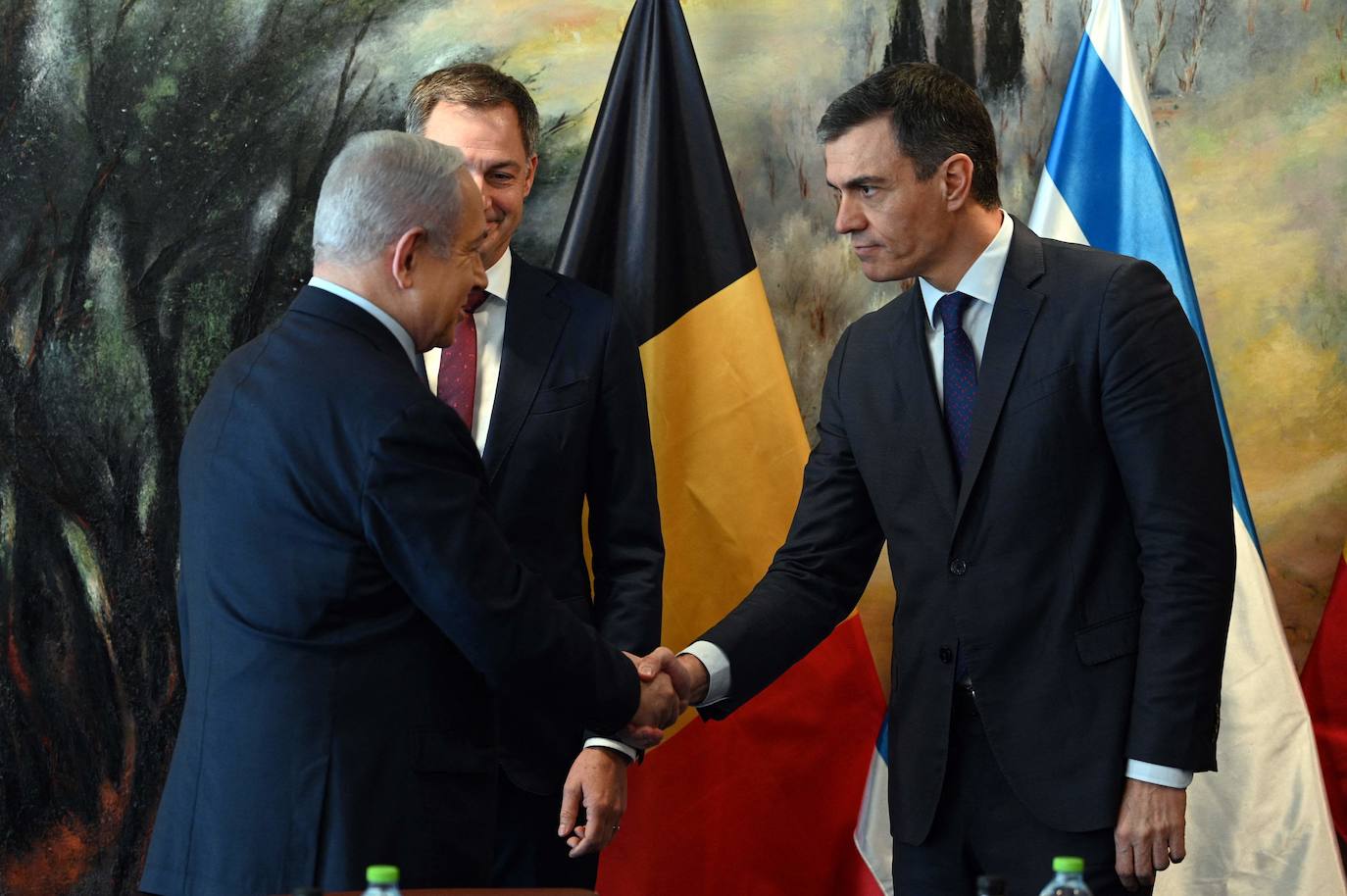Return to form
When it was first created in 1948, Israel wanted nothing to do with the Franco regime. As a result, Spain forged alliances with Arab countries in the region
Spain has an ally and admiring friend in the terrorist organisation Hamas. That much seemed clear after Pedro Sánchez's visit, with Belgian prime minister ... Alexander De Croo, to Israel, Palestine and Egypt last weekend - his first international trip since returning to power. In a speech at the Raffa Border, the only crossing-point between Gaza and Egypt, Sánchez condemned Israel's 'indiscriminate killing of innocent civilians' and claimed that it was not acting within the limits of humanitarian law.
Sánchez also implied that even if the EU didn't recognise a Palestinian state, Spain would - a surprising statement from the leader of the country that currently holds the rotating six-month presidency of the EU Commission. In a statement, Hamas thanked both Sánchez and De Croo for their 'clear and bold stance'.

The Spanish right is justifiably outraged that Sánchez is drawing praise from fundamentalists who prefer decapitation to diplomacy and dialogue. Unlike further-left colleagues from Podemos and Izquierda Unida, though, Sánchez has repeatedly condemned the Hamas attacks of October 7th. There are no contradictions in this stance: condemnation of Israel's pulverization of Gaza is entirely compatible with censure of the psychotic rampage by which it was triggered.
Naturally, Israel doesn't see it that way. Its foreign minister Eli Cohen wrote on X that 'we condemn the false claims of the Prime Ministers of Spain and Belgium which support terrorism'. One wonders which parts of Sánchez's and Woo's statements are supposed to be false, though. According to Palestinian officials, Israel's response to the October 7th attacks has so far resulted in over 13,000 deaths in Gaza. If it is wrong to say Israel's assault on Gaza has been indiscriminate and in violation of international criminal law, then the burden of proof rests with Benjamin Netanyahu, not on his critics.
Nevertheless, Cohen isn't necessarily paranoid in suspecting that there's an undercurrent of hostility within the Spanish government, despite Sánchez's denunciation of Hamas and his assertion of Israel's right to defend itself (provided that it does so within the confines of international law, a restriction which Spain's far left seems much more reluctant to apply to Hamas).
When it was first created in 1948, Israel wanted nothing to do with the Franco regime. As a result, Spain forged alliances with Arab countries in the region, the strength of which depended upon mutual non-recognition of Israel. It proved a hard habit to break: Adolfo Suárez, the centre-right leader of Spain's first post-Franco government, refused to recognise Israel unless it withdrew from the West Bank and allowed a Palestinian state. Sánchez's speech at the Raffa Border last weekend marked a return to a tougher stance on Israel, the unfortunate consequence being that Hamas now thinks Spain is on its side.
¿Tienes una suscripción? Inicia sesión
